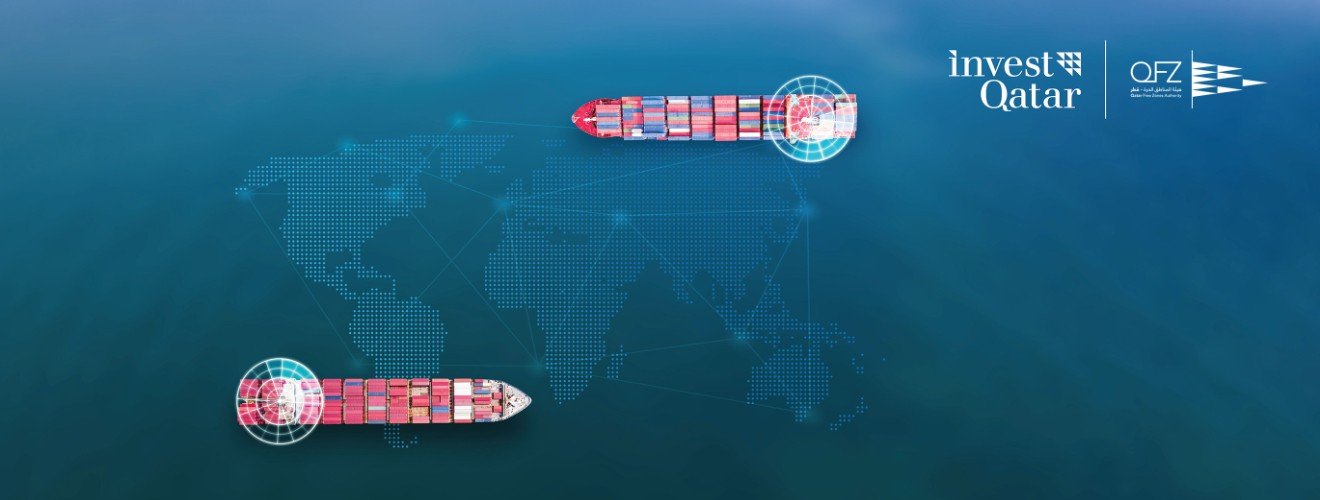The Logistics Landscape in Qatar: Trends Shaping Supply Chain Operations
Qatar’s strategic investments in infrastructure, innovation, and trade are positioning it as a rising logistics hub in the Gulf. From world-class ports to streamlined customs processes, the country’s supply chain ecosystem is evolving rapidly to meet the demands of a digital-first, global economy.
According to the World Bank’s 2023 Logistics Performance Index, Qatar ranks among the top 30% globally in trade and transport infrastructure, highlighting its growing competitiveness in global supply chains.
In this blog, we explore the key logistics trends shaping Qatar’s future and how companies like WareOne are supporting this transformation with smart, scalable logistics solutions.
What Is Powering Qatar’s Logistics Boom?
Qatar is fast becoming a logistics hotspot, thanks to a powerful mix of smart investments, digital innovation, and global trade ambitions. As industries push for faster delivery and better supply chain control, Qatar is stepping up with future-ready solutions that meet both regional and international demands.
Here’s a closer look at the most impactful trends reshaping how goods move in and out of the country.
- World-Class Infrastructure that Connects Continents
Qatar’s logistics momentum starts with its state-of-the-art infrastructure. At the forefront is Hamad Port, one of the Middle East’s most advanced deep-sea ports, capable of handling over 1.5 million TEUs annually. Its automation, customs efficiency, and proximity to key free zones make it a strategic gateway for trade between Asia, Europe, and Africa.
Complementing this is the growing network of inland logistics parks and special economic zones like Ras Bufontas and Umm Alhoul. These hubs offer streamlined access to air, sea, and road transport, along with investor-friendly policies such as 100% foreign ownership and tax exemptions.
Together, these infrastructure advances are turning Qatar into a vital node in global supply chains and offering businesses a resilient platform to scale their logistics operations across borders.
- Digital Transformation and Smart Logistics
Qatar’s logistics sector is rapidly embracing digital tools to boost speed, visibility, and control across the supply chain. From AI-powered fleet management to warehouse automation, companies are rethinking traditional logistics with tech-first strategies.
- One major shift is the adoption of real-time tracking systems and IoT-enabled devices, which give businesses end-to-end visibility over shipments, inventory, and delivery performance.
- Additionally, cloud-based logistics platforms are helping companies centralise operations, automate documentation, and optimise delivery routes based on live traffic and weather data. These tools are especially valuable in Qatar’s fast-moving, high-demand environment.
As a result, businesses are cutting operational costs and improving service levels while meeting customer expectations for transparency and reliability.
- Regulatory Innovation and Trade Facilitation
Qatar is making it easier for businesses to trade efficiently through smart policy reforms and streamlined processes. At the centre of this effort is the Single Window System, a government-led platform that allows importers and exporters to complete all regulatory steps in one place, cutting down paperwork, approval times, and customs delays.
These improvements are aligned with global standards set by the World Trade Organisation’s Trade Facilitation Agreement, ensuring Qatar remains competitive and business-friendly on the international stage.
By modernising trade protocols and simplifying logistics procedures, Qatar is building a regulatory environment that supports growth without compromising on security or compliance.
- Sustainability Becoming a Logistics Priority
As global pressure mounts to reduce carbon emissions, Qatar is aligning its logistics sector with sustainable practices. Companies are investing in eco-friendly fleets, solar-powered warehouses, and route optimisation software to cut fuel use and environmental impact.
This shift isn’t just about global reputation, it’s about long-term efficiency. For example, optimising delivery routes and consolidating shipments not only lowers emissions but also reduces costs and enhances last-mile delivery performance.
Government initiatives are also encouraging greener logistics. Programs promoting electric vehicles (EVs), energy-efficient infrastructure, and green building certifications are gradually becoming part of national logistics planning.
- Talent and Workforce Development in the Logistics Sector
As Qatar’s logistics industry grows more advanced, the demand for skilled talent is rising. From warehouse automation specialists to supply chain analysts and AI-driven logistics managers, the sector is evolving fast, and so are the workforce needs.
Key workforce development initiatives include:
- Vocational and university programs focused on supply chain management and transport logistics.
- Public-private partnerships offering hands-on training with logistics tech platforms and warehouse tools.
- National talent development programs aligned with Qatar National Vision 2030, aiming to localise and upskill the workforce.
- Incentives for tech adoption that encourage logistics teams to build digital fluency and automation skills.
- Support for women in logistics, helping diversify the sector and close skill gaps.
With a future-facing workforce strategy, Qatar is ensuring that its logistics ambitions are matched by the people who can power them.
What Else Is Driving Qatar’s Logistics Growth?
Beyond infrastructure and tech, several underlying forces are quietly strengthening Qatar’s logistics momentum. These enablers add stability, innovation, and scalability to the sector’s foundation:
- Geostrategic Location: Qatar’s position between Asia, Europe, and Africa makes it a natural transit hub for global trade.
- Strong Government Backing: National policies continue to prioritise logistics modernisation as part of economic diversification efforts.
- Surge in Cold Chain Demand: Growing sectors like pharma, food, and floriculture are fueling investments in temperature-controlled logistics.
- Startups and Tech Ecosystems: Local logistics startups and accelerators are introducing new solutions in fleet automation and delivery tracking.
- Stable Investment Climate: Qatar offers foreign ownership rights, tax benefits, and regulatory transparency that attract global supply chain players.
These combined forces create a fertile ground for innovation, resilience, and long-term logistics growth in Qatar.
Final Thoughts
Qatar’s logistics sector is in the midst of a powerful transformation, driven by innovation, infrastructure, policy reform, and a forward-looking workforce. These changes aren’t just keeping pace with global trends; they’re helping redefine what efficient, tech-enabled supply chains can look like in the Gulf region.
For businesses looking to expand, streamline operations, or improve delivery capabilities in Qatar, staying aligned with these trends is no longer optional; it’s essential.







